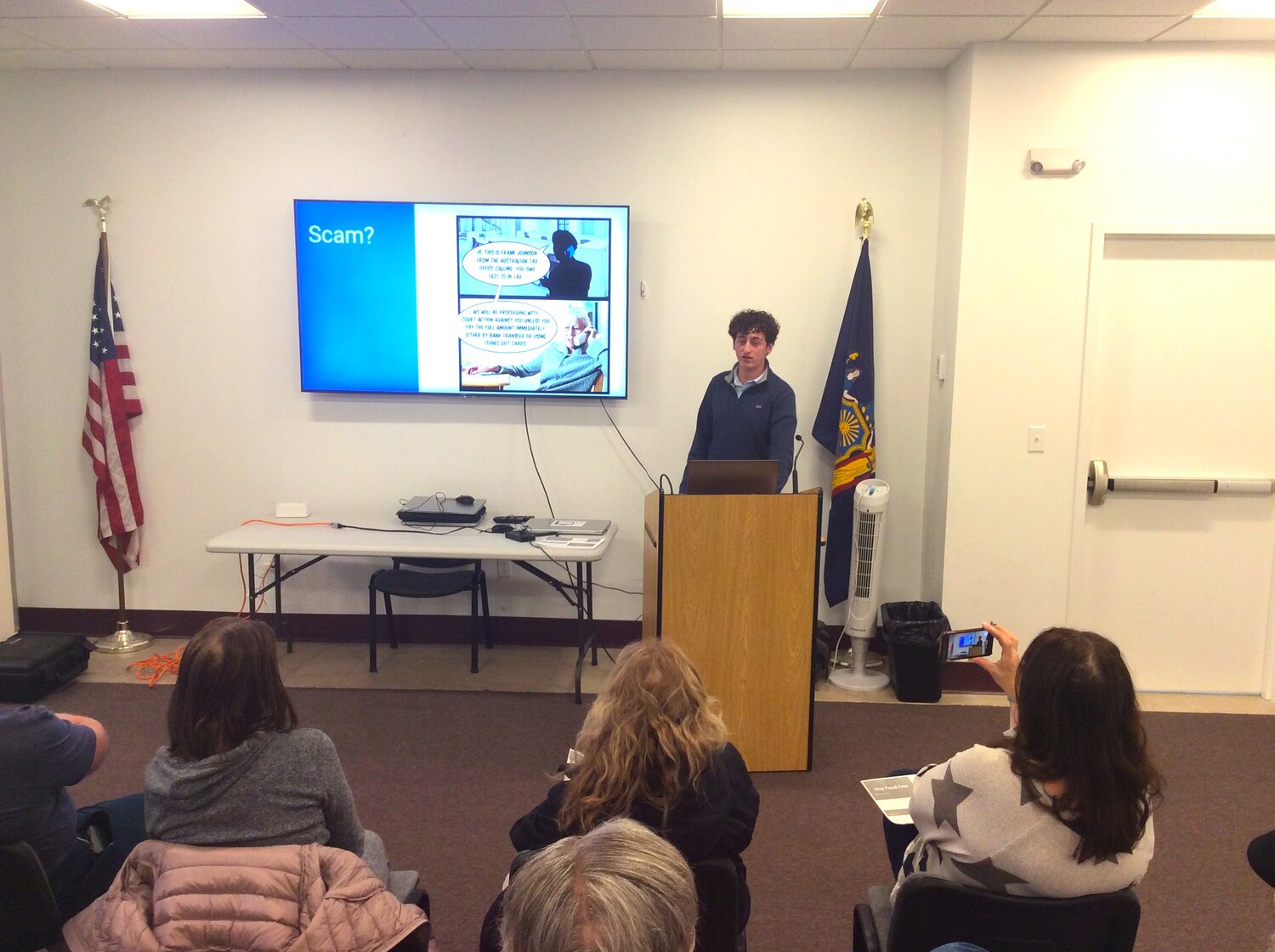Oceanside student leads elder scam workshop
Oceanside Library and O’Side High School sophomore Max Greenberg are doing their part to keep seniors safe from elder fraud. Greenberg shed light on the pervasive issue of elder fraud and scams in an informative presentation on Dec. 26 at the library. The session was aimed at educating the community and delving into various scams, red flags, and effective prevention strategies.
Greenberg highlighted the prevalent phishing scams, where scammers pretend to be organizations, creating a sense of urgency to extract personal information, and walked through the intricacies of phishing scams, where scammers use urgency and the new emerging trend—AI-generated voices.
Greenberg explained how scammers could use AI to replicate familiar voices, recounting a personal story of a scam call targeting his grandfather, where scammers pretended to be Greenberg’s sister.
Analyzing the red flags—unknown numbers, unclear voices, and urgent demands—Greenberg stressed the crucial question that could thwart scams: “What’s the password?”
Greenberg introduced a unique approach to real-world safety—implementing a “safe word” within families, detailing how a secret, uncommon code word could serve as a verification tool, especially in situations involving trusted individuals like friends or family members.
“Had my grandfather stopped and asked, ‘What’s the password?’ to the person pretending to be my sister, that would have completely saved him from (losing) thousands and thousands of dollars,” said Greenberg.
The presentation outlined green flags for secure online browsing, emphasizing the importance of looking for secure URLs, avoiding spelling errors, and being cautious of suspicious websites. Addressing password security, Greenberg recommended using complex and unique passwords across platforms, urging the audience to avoid common phrases. Two-factor authentication and scrutinizing websites for security features were additional safeguards discussed.
The Q&A session allowed attendee Joyce Goldsmith to share her experience of receiving a scam letter in the mail after she bought her new car. The letter, seemingly from Honda—urged immediate action regarding a matured lease agreement. Despite the letter’s official appearance, Goldsmith detected a red flag and initiated a careful investigation.
“I typed the provided phone number into my browser, and it turned out to be flagged as a scam,” she said. “It looked so real and the only way I could figure it out was through that phone number.”
The incident underscored the need for a discerning eye even when confronted with seemingly official documents. Greenberg acknowledged the evolving tactics of scammers and encouraged attendees to stay vigilant and reiterated the importance of checking accounts regularly for fraudulent activity and urged the community to be cautious of any unexpected calls, emails, or messages.
“If anyone can remember just one simple thing from any of the solutions I’ve given, this can prevent a lot of harm to families,” Greenberg said.






